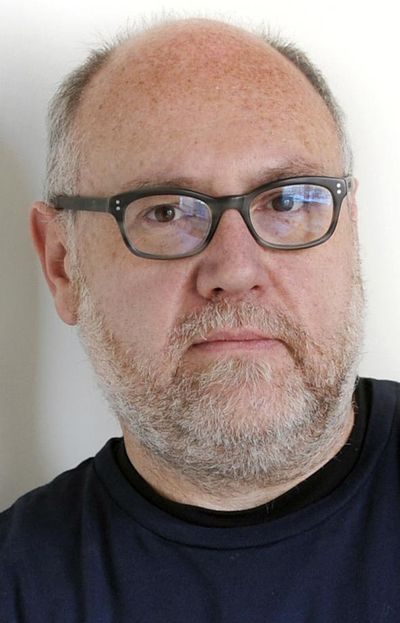This column reflects the opinion of the writer. Learn about the differences between a news story and an opinion column.
Shawn Vestal: Tim Eyman’s initiative machine may require new rules

This was the suggestion last week from state officials in the most recent case against initiative peddlers Eyman, Fagan, his father, Jack Fagan, and Mead resident Barbara Smith. For people with an enormous reservoir of campaign experience, they struggle mightily to color within the lines when it comes to state laws on disclosing how they raise and spend money, and how much of it makes its way into Eyman’s checking account.
Their repeated flouting of disclosure laws and battles with regulators have left the state’s Public Disclosure Commission “dismayed,” said PDC spokeswoman Lori Anderson this week, and considering whether further, so far unspecified, legislation might be needed to put a cork in initiative profiteering.
The Eyman machine presents a unique case. It is constantly gathering signatures, churning out initiative propositions and forming political committees – sometimes issues qualify for the ballot, sometimes they don’t. State law prohibits raising money for one initiative and shifting it to support another without reporting it, or raising money for an initiative and using it to run attack ads against candidates, or paying yourself secretly from initiative funds.
Complaints about Eyman groups in recent years suggest there is a pattern of such activity that has not abated since he was slapped down in 2002 and fined $55,000 for election violations, including making secret payments to himself. At that time, he confessed that he had been duping his friends and supporters by claiming he wasn’t making money on the initiatives, and called that “the biggest lie of my life.” The PDC says he’s taken in more than $2 million since 1998, and says it believes that is an incomplete figure.
Since last September, an attorney general’s investigation into allegations of money-shuffling and self-dealing has been underway. Officials allege that Eyman moved money between political committees, paid himself handsomely along the way and obscured all the shuffling in its PDC reports. The PDC asserted that its penalties were too soft for these violations and urged the AG to consider criminal charges.
Last week came another rebuke from the PDC. In this report, commissioners found that an Eyman group failed to properly disclose the nature and sources of funding for a series of attack ads against candidates.
Compared to the other case, this one looks like a jaywalking ticket in a felony file. But when the PDC voted to send this batch of allegations to the attorney general, urging him to take “appropriate actions,” they included a bit of unusual, added oomph: An additional note focusing on the broader context of the Eyman operation and the possibilities for abuse.
“In making this recommendation, the Commission wishes to convey its concerns about the possible use of the initiative process for self-advantage, when a sponsor files a number of different initiatives without intending to collect signatures to qualify those issues for the ballot,” the PDC wrote. “The Commission notes that such efforts appear to allow a sponsor to raise significant sums of money and then transfer, comingle, and ultimately use those funds for purposes other than that for which the funds were ostensibly raised.”
The commission added, “current law and rules may not sufficiently address this issue.”
Anderson, the agency spokeswoman, said commissioners added that note following a discussion at a hearing Friday. Commission Chair Anne Levinson did not return a message seeking comment, but Anderson said commission members “expressed some dismay that the entire process in their opinion is becoming sort of a tool for people to profit from.”
Much of the commissioners’ dismay stems, no doubt, from their experiences in the past couple of years investigating the larger complaint – the one that’s now in the hands of the AG. In that case, investigators allege that Eyman engaged in an extensive money-shuffle among different organizations and political committees, spending money raised for one initiative on other issues, and routing money back to himself and his ongoing initiative business.
“Our staff felt they had uncovered this trail of concealment where there were some kickbacks happening,” Anderson said.
They were also frustrated by what they viewed as Eyman’s lack of cooperation in turning over documents – a battle that has continued right up until this summer, with a judge ordering Eyman to turn over the relevant records after the AG’s office took him to court over the issue.
Eyman’s attorney says the PDC has adopted a “hostile” approach to his client. The attorney, Mark Lamb, insists Eyman followed disclosure laws, or made innocent mistakes that did not substantially conceal information from the public and which he corrected promptly. He complained this week that state officials have refused to provide assistance to Eyman regarding the filing of some new reports; the PDC has said it can’t do so because of an ongoing investigation.
Eyman himself did not return a message seeking comment.
The cases roll onward. A new complaint about a different Eyman organization was filed last week, and the sparring has begun. If the past is any guide, we can look forward to more initiatives, more PDC complaints, more conclusions from the attorney general – and perhaps a bill or two intended to make the whole thing cleaner.
Shawn Vestal can be reached at (509) 459-5431 or shawnv@spokesman.com. Follow him on Twitter at @vestal13.
